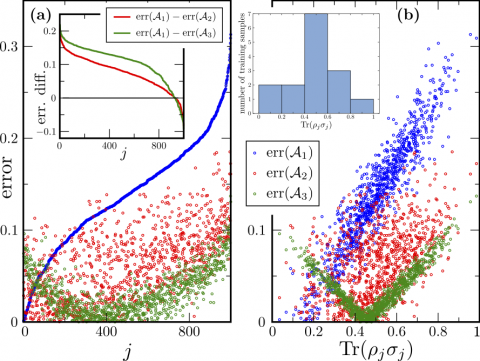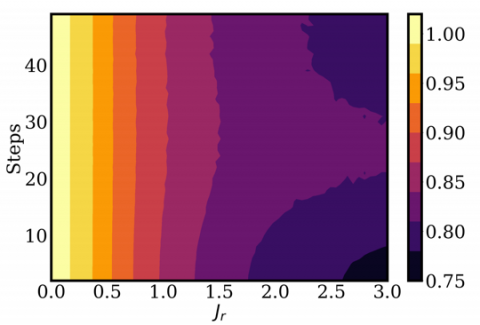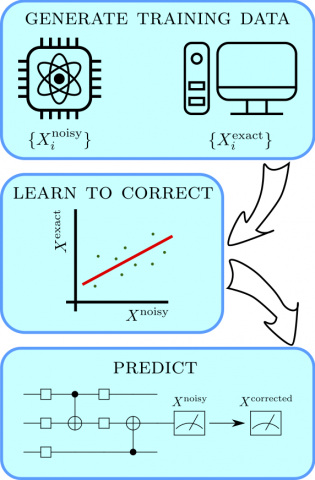-
Noise-Induced Barren Plateaus in Variational Quantum Algorithms
We rigorously prove a serious limitation for Variational Quantum Algorithms (VQAs), in that the noise causes the training landscape to have a barren plateau (i.e., vanishing gradient). For local Pauli noise, we prove that the gradient vanishes exponentially in the number of layers L. This implies exponential decay in the number of qubits n when…
-
Quantum proportional-integral feedback control
We develop a theory of proportional-integral (PI) feedback control for quantum systems, and demonstrate its utility in two canonical state stabilization problems in quantum information. Feedback control is a general approach to engineering reliability and stability in many modern technologies. PI feedback is the most common and useful type of control in classical systems, and…
-
Limitations of Hartree-Fock with quantum resources
We highlight obstructions to using quantum approaches as a replacement for standard self-consistent field method solutions using simple, well-motivated examples of convergence issues. Due to multiple local minima there is no a priori guarantee that typical quantum approaches will find the global solution. We conclude that the application of quantum technology to Hartree-Fock may serve…
-
Evaluating energy differences on a quantum computer with robust phase estimation
We extended robust phase estimation (RPE) – a protocol for characterizing single-qubit gates – to the evaluation of energy differences in quantum simulation. We demonstrated our protocol on IBM’s Quantum Experience, verifying that it achieves optimal Heisenberg-like scaling. We also proved that our approach has a relatively high tolerance for particular coherent state preparation and…
-
Noise-aware circuit learning
Noise mitigation and reduction will be crucial for obtaining useful answers from near-term quantum computers. We present a general framework based on machine learning for reducing the impact of quantum hardware noise and limitations on quantum circuits. Given a computational task and a device model, our noise-aware circuit learning algorithm (NACL) outputs an optimized circuit…
-
Quantum simulation of the qubit-regularized O(3)-sigma model
We demonstrate how to prepare the ground state of the O(3)-sigma model and measure the O(3) Noether charge, on a quantum computer. We present and analyze a quantum simulation algorithm that is suitable for near-term noisy quantum devices. We consider a crucial step in simulating field theories, which is a method of truncating the Hilbert…
-
Error mitigation with Clifford quantum-circuit data
We propose a novel, scalable error mitigation method that applies to gate-based quantum computers. The method uses training data from quantum circuits that are classically efficiently simulatable to generate fitting models that can be used to correct for the effects of noise on the output of classically intractable quantum circuits. For details see “Error mitigation with…







